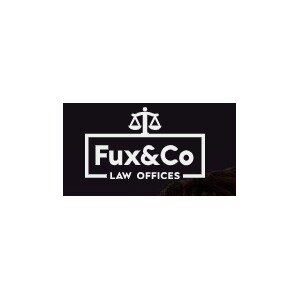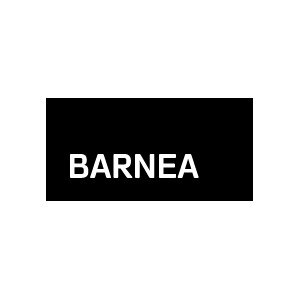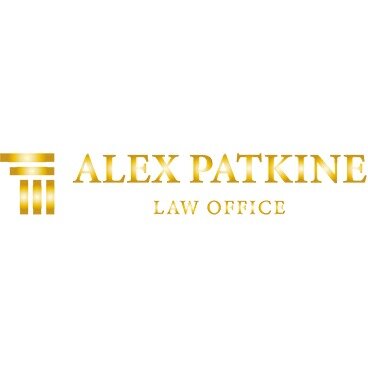Best Landlord & Tenant Lawyers in Tel Aviv
Share your needs with us, get contacted by law firms.
Free. Takes 2 min.
Free Guide to Hiring a Real Estate Lawyer
List of the best lawyers in Tel Aviv, Israel
About Landlord & Tenant Law in Tel Aviv, Israel
Landlord and tenant law in Tel Aviv, Israel, covers the range of regulations governing rental agreements and disputes between property owners and renters. These laws ensure that both parties' rights and responsibilities are clearly defined and protect against unfair practices. The legal framework is intended to create a balanced relationship where both landlords and tenants can coexist with mutual respect and understanding.
Why You May Need a Lawyer
In the context of landlord and tenant issues, there are several scenarios where legal assistance might be necessary:
- Lease Agreements: Drafting, reviewing, or negotiating lease agreements to ensure all terms are fair and legally binding.
- Security Deposits: Disputes over the return of security deposits and damages to the property.
- Evictions: Legal representation for tenants facing eviction or landlords looking to evict tenants lawfully.
- Rent Increases: Guidance on legal limits and procedures regarding rent increases.
- Maintenance Issues: Addressing disputes over property maintenance and repairs.
- Unlawful Practices: Protection against illegal actions by either party, such as unauthorized entry or harassment.
Local Laws Overview
The key aspects of landlord and tenant laws in Tel Aviv, Israel, include:
- Rental Agreements: All rental arrangements should be documented in a written lease agreement specifying the terms and conditions agreed upon by both parties.
- Rent Control: In certain areas, there are regulations in place to control the rate at which rents can be increased to prevent unsustainable living costs.
- Security Deposit: Landlords can request a security deposit, which must be kept in a separate escrow account and returned upon lease termination, minus any lawful deductions.
- Eviction Process: Evictions must be carried out through a legal process that includes giving proper notice and going through the judicial system if necessary.
- Property Maintenance: landlords are responsible for ensuring the property meets health and safety standards, and tenants should report any issues that need attention.
Frequently Asked Questions
What should be included in a rental agreement?
A rental agreement should include the names of the landlord and tenant, the property address, the duration of the lease, rent amount, payment dates, security deposit details, maintenance responsibilities, and any other specific terms agreed upon by both parties.
How much can a landlord increase the rent in Tel Aviv?
Rent increases are subject to local regulations. Landlords must follow legal procedures and provide appropriate notice, and increases should be reasonable in accordance with market rates.
Can a landlord evict a tenant without a legal process?
No, landlords must follow the legal eviction process, which includes giving notice and obtaining a court order if necessary. Unlawful evictions can result in legal consequences for the landlord.
What can a tenant do if their landlord is not making necessary repairs?
Tenants should document maintenance issues and notify the landlord in writing. If the landlord fails to address the issues, tenants may seek legal action or mediation to resolve the matter.
Is it mandatory to have a written lease agreement?
While verbal agreements can be binding, it is highly recommended to have a written lease agreement to clearly outline the terms and avoid potential disputes.
What are a tenant's rights regarding privacy?
Tenants have the right to privacy within their rented property. Landlords must provide notice before entering the premises, except in emergencies.
How can a tenant get their security deposit back?
Tenants should ensure the property is in good condition upon moving out. The landlord must return the security deposit within a specified period, minus any lawful deductions for damages.
What steps should a tenant take if they face unlawful eviction?
Tenants should seek immediate legal advice and may file a complaint with the relevant housing authority or take the matter to court to prevent unlawful eviction.
How can mediation help in landlord-tenant disputes?
Mediation provides a platform for landlords and tenants to resolve disputes amicably with the help of a neutral third party, potentially avoiding lengthy and costly legal proceedings.
What is considered "fair wear and tear"?
Fair wear and tear refer to the natural deterioration of the property due to normal use. Tenants are not responsible for such wear and tear but may be liable for damages beyond it.
Additional Resources
For further assistance, consider the following resources:
- Ministry of Justice: Offers legal guidance and resources for landlord-tenant disputes.
- Tel Aviv Municipality: Provides information and support regarding housing regulations.
- Tenants' Organizations: Non-governmental organizations that advocate for tenant rights and provide legal assistance.
- Legal Aid Clinics: Offer free or low-cost legal services to those in need.
Next Steps
If you need legal assistance regarding a landlord and tenant issue in Tel Aviv, consider taking the following steps:
- Document Everything: Keep detailed records of all communications, agreements, and issues related to your tenancy.
- Consult a Lawyer: Contact a lawyer specializing in landlord and tenant law to review your situation and provide legal counsel.
- Use Mediation Services: Consider mediation to resolve disputes amicably before pursuing legal action.
- File a Complaint: If necessary, file a complaint with the appropriate housing authority or take the matter to court.
Being informed and prepared can significantly impact the outcome of your landlord-tenant issues. Don't hesitate to seek professional help to protect your rights and interests.
Lawzana helps you find the best lawyers and law firms in Tel Aviv through a curated and pre-screened list of qualified legal professionals. Our platform offers rankings and detailed profiles of attorneys and law firms, allowing you to compare based on practice areas, including Landlord & Tenant, experience, and client feedback.
Each profile includes a description of the firm's areas of practice, client reviews, team members and partners, year of establishment, spoken languages, office locations, contact information, social media presence, and any published articles or resources. Most firms on our platform speak English and are experienced in both local and international legal matters.
Get a quote from top-rated law firms in Tel Aviv, Israel — quickly, securely, and without unnecessary hassle.
Disclaimer:
The information provided on this page is for general informational purposes only and does not constitute legal advice. While we strive to ensure the accuracy and relevance of the content, legal information may change over time, and interpretations of the law can vary. You should always consult with a qualified legal professional for advice specific to your situation.
We disclaim all liability for actions taken or not taken based on the content of this page. If you believe any information is incorrect or outdated, please contact us, and we will review and update it where appropriate.

















